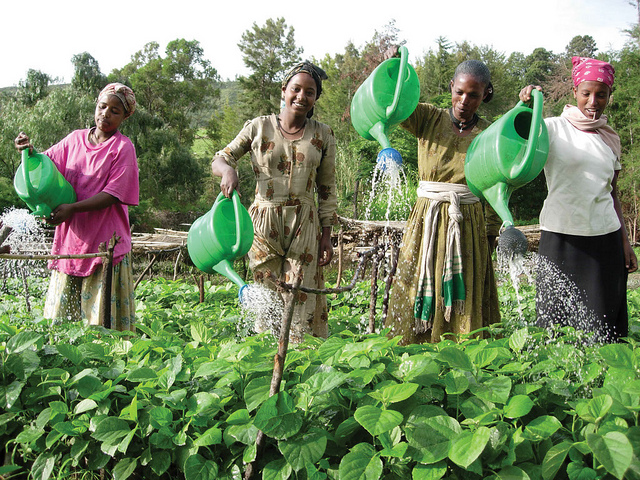By Eugenio Díaz-Bonilla and Jonathan Hepburn
Just 15 months after governments at the UN agreed a set of bold new global goals on everything from ending poverty and hunger to tackling climate change and insecurity, prospects for global cooperation in a range of areas are looking distinctly dimmer than they did before.
Politicians in different countries are capitalizing on people’s well-founded fears of conflict, terrorism and unemployment, by calling for tough new restrictions on the movement of people, goods and services across national borders.
Some also question basic tenets of international law in areas such as human rights and humanitarian protection, or argue explicitly that it doesn’t matter if their country’s actions cause harm to people living elsewhere.
While some may find the slogans and statements deceptively seductive, recent history suggests this approach is singularly ill-suited to tackling the common problems we face in today’s globalized world.
Environmental threats don’t stop at political borders. And in an increasingly integrated world economy, people’s incomes and quality of life are ever more dependent on those of other people on the opposite side of the planet.
None of which means that “business as usual” is an acceptable option.
National policies and global rules today are still failing too many people, too often. In the wake of the G20 agriculture ministers meeting Berlin Jan. 22 (although certainly the challenge involves more than only agricultural issues) there is an opportunity to revisit how much progress has been made in tackling hunger and malnutrition, as well as to assess the size of the challenge remaining.
With some 200 million fewer people going hungry in recent decades, huge advances have been made in reducing undernourishment.
However, progress has been uneven—with China alone accounting for much of the progress, and Africa south of the Sahara still facing massive challenges. Furthermore, the number of obese and overweight people is rising worldwide, while many people still suffer from deficiencies in key micronutrients that they need.
No country can solve these problems alone. Indeed, working together to improve how global markets function will be key to ensuring that everyone has safe and sufficient food in the years ahead—especially if climate-related extreme weather events mean that sudden market shocks become more frequent and intense.
With many people regularly lacking the income they need to be able to buy enough food, governments in poor countries will need to expand domestic food aid for these consumers and poverty-based safety nets for the poor and vulnerable, perhaps financed through international collaborative action.
And although boosting farm productivity is likely to be key to tackling hunger in rural areas, governments could also usefully do more to create rural jobs and raise incomes in other economic sectors.
Current rules at the World Trade Organization (WTO) provide plenty of scope for governments to support farming without harming producers abroad—for example, by allowing unlimited support for “public goods” such as pest control, research, rural infrastructure, land titling, or farm advisory services.
And while many countries have made progress in reducing trade-distorting subsidies for farming in recent years, more could still be done to make global markets fairer by agreeing to lower ceilings for distorting farm support at the international level, or eliminating subsidies that incentivize overfishing.
The next ministerial meeting of the WTO, in Buenos Aires this December, will be a key opportunity for governments to build on recent achievements in making world food markets fairer, by agreeing to take action in these priority areas.
Indeed, recent steps forward at the WTO on agricultural export subsidies suggest that incremental progress is both feasible and realistic.
Working together towards these goals can help move towards the vision set out in the Sustainable Development Goals—of a world in which we are all better off, because no one has been left behind.
Jonathan Hepburn is Senior Agriculture Programme Manager at the International Centre for Trade and Sustainable Development, Geneva; Eugenio Díaz-Bonilla is Head of the Latin America and Caribbean Program at IFPRI. This is an updated version of a piece originally published by the Thomson Reuters Foundation.







